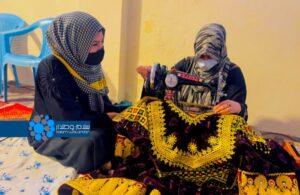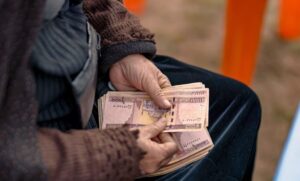In Afghanistan, where access to quality healthcare is scarce, many patients endure the consequences of misdiagnoses, leading to delayed treatments and further deterioration of their health.
Farid, who brought his father to the cancer treatment hospital in Kabul, says that after two years of severe illness, it has only recently been determined that his father has cancer.
Farid explains that earlier, doctors had conducted numerous tests and diagnosed his father with jaundice. “My father has liver cancer. Initially, the diagnosis was incorrect, and they said he had jaundice, but later it turned out to be cancer,” he said.
Despite spending all his savings and trying every possible route to help his father’s recovery, Farid believes the incorrect initial diagnosis by doctors contributed to the worsening of the illness.
“If I talk about money, all our assets have been spent on my father’s treatment. Only the few friends we have lend us money, and I’ve borrowed 500 afghani from everyone I know. I’ve been unemployed for three years, sitting at home with my 10 family members, and we rely on God’s grace,” he shared.
The inability of doctors and treatment centers to provide accurate diagnoses has not only affected Farid’s father and family, but it also puts the lives of many patients, especially those with more complex diseases, at risk.
One such case is that of Rahima’s father, a resident of Ghazni, who was misdiagnosed by doctors and given the wrong medication.
Rahima explains, “They told us it was tuberculosis. We took him to the tuberculosis hospital, where he was hospitalized for a month. After that, they told us to go to Kabul. In Kabul, doctors examined him and said it wasn’t tuberculosis; it was stomach cancer. We spent a lot of money there, and after that, we came home, and they discharged him. After two weeks, he passed away.”
Abdul Satar, a resident of Chaharsada district in Ghor, faced a similar ordeal with his child, whose blood became infected. He says that he consulted many doctors, but each one gave a different and incorrect diagnosis.
“We took our child to several hospitals and clinics, but every time his condition worsened, we tried to take him somewhere where the treatment would be more effective. After visiting the city center, the treatment would improve his condition for a day or two, but after a while, the illness worsened again,” he said. “One doctor said it was tuberculosis, another said it was a heart defect, and another said his blood was contaminated. We’ve spent so much on treatment, and I’m still in debt to the pharmacists.”
Since misdiagnosis or delayed diagnosis can significantly hinder the treatment process, caregivers say this issue has imposed heavy financial burdens on them.
Qand Agha Hassan, a general surgeon at Ibn-e-Sina Hospital in Kabul, says, “Timely diagnosis is crucial as it helps prevent complications that might arise later. Two essential factors are that the doctor should be a specialist with high capacity and expertise, as both are very important.”
While citizens continue to complain about misdiagnosis by doctors, officials at the Ministry of Public Health have previously stated that more than 74% of citizens do not have access to basic health services.
This lack of resources and healthcare infrastructure has made it difficult for many people in remote areas or even large cities of Afghanistan to receive proper treatment and timely diagnosis.






